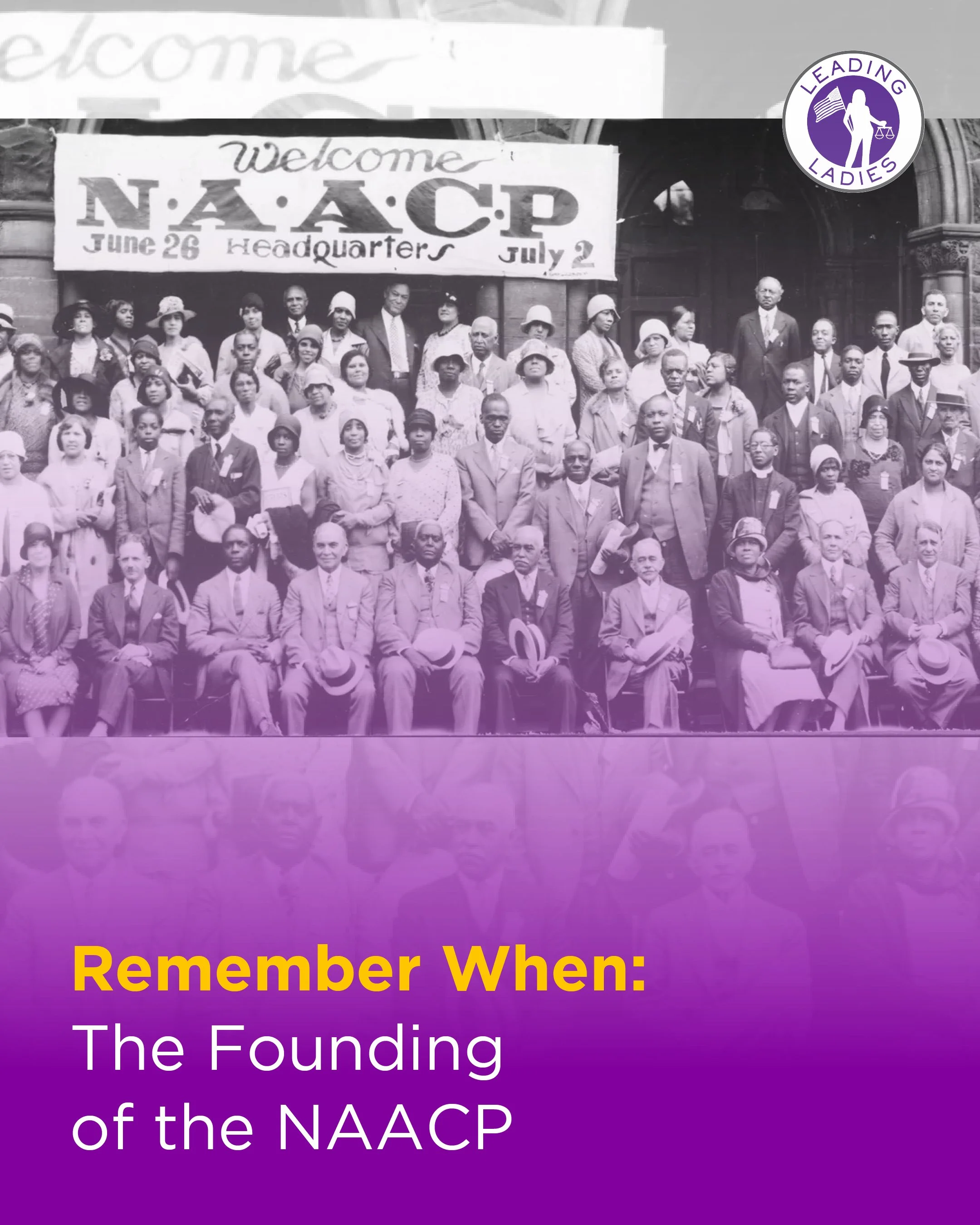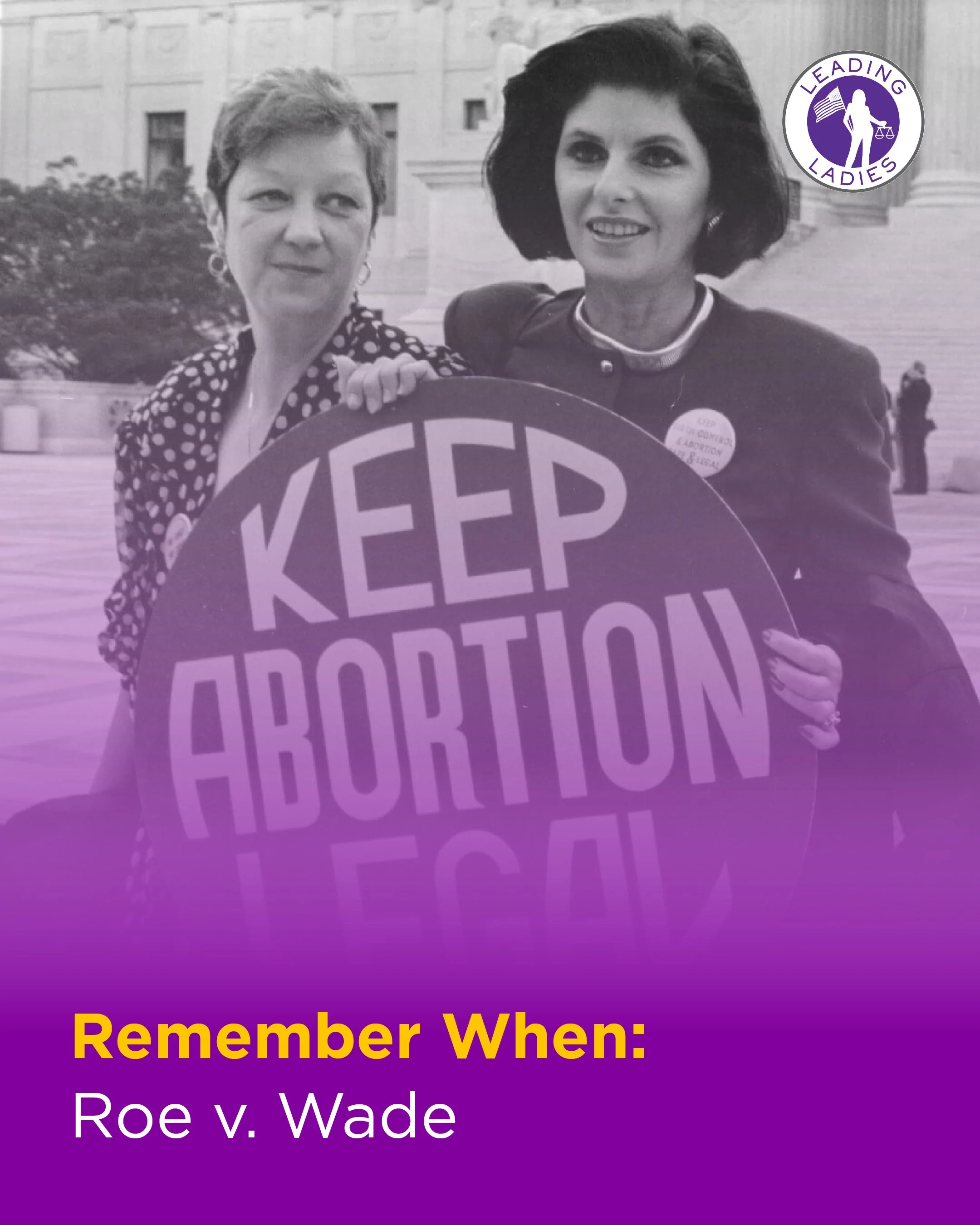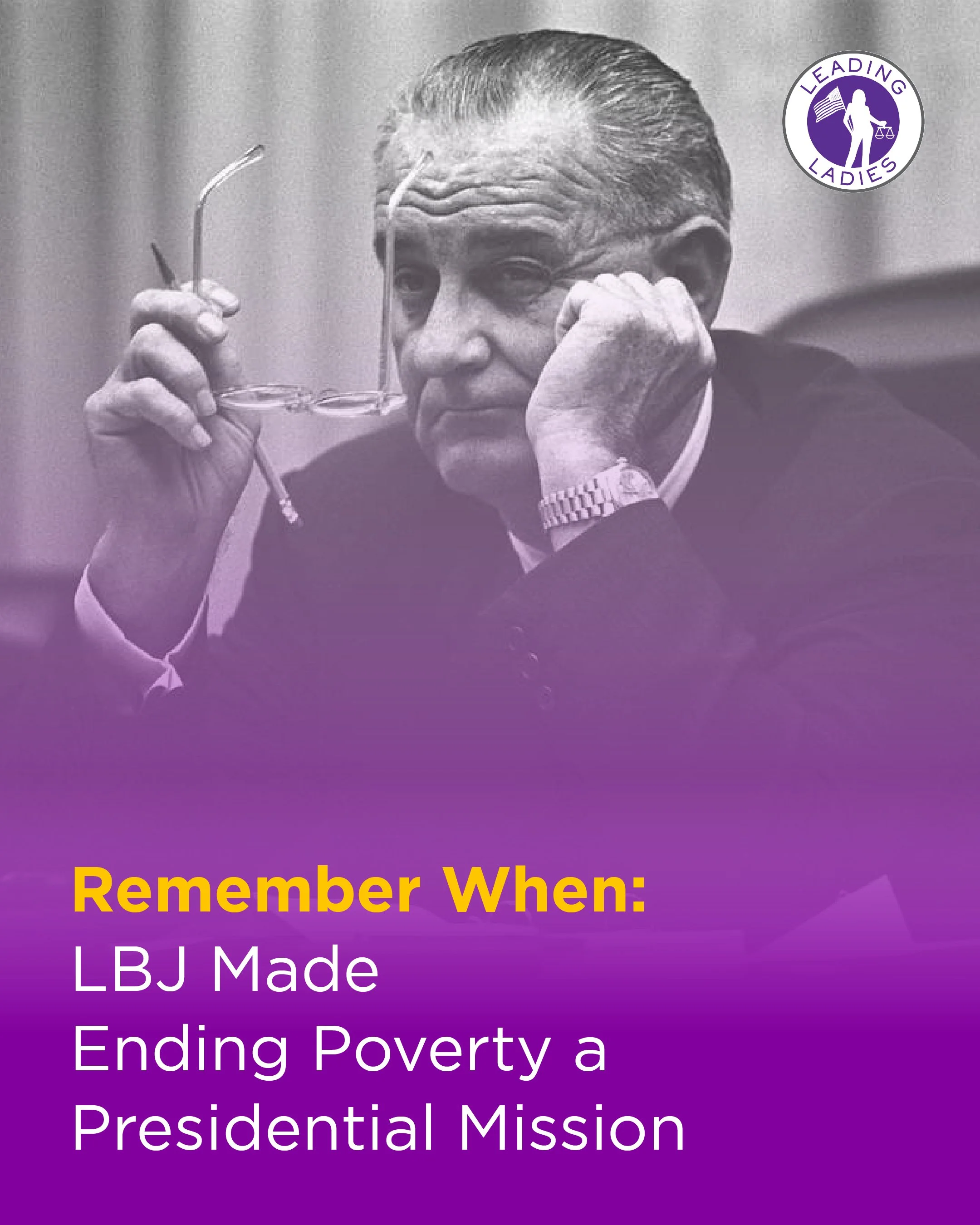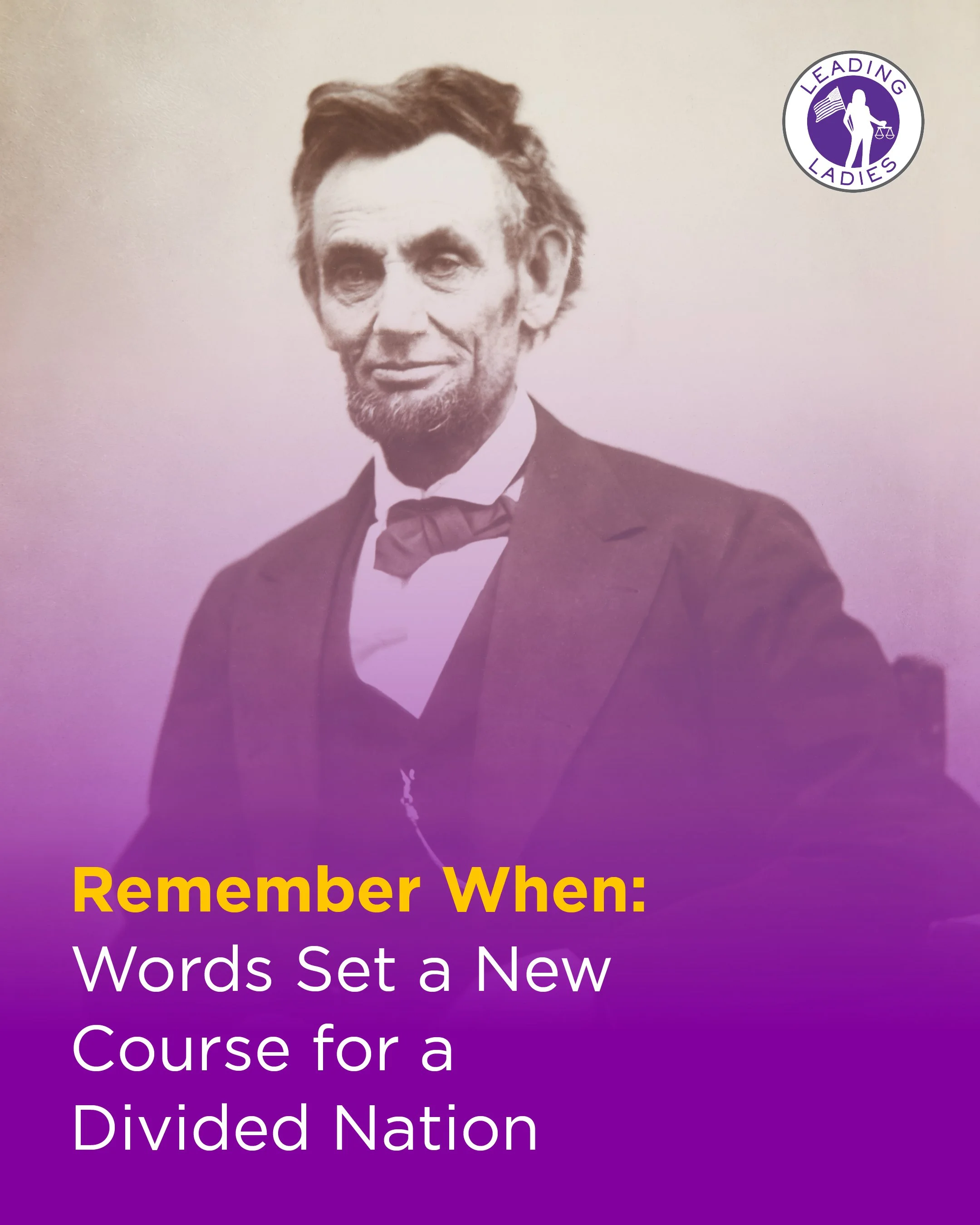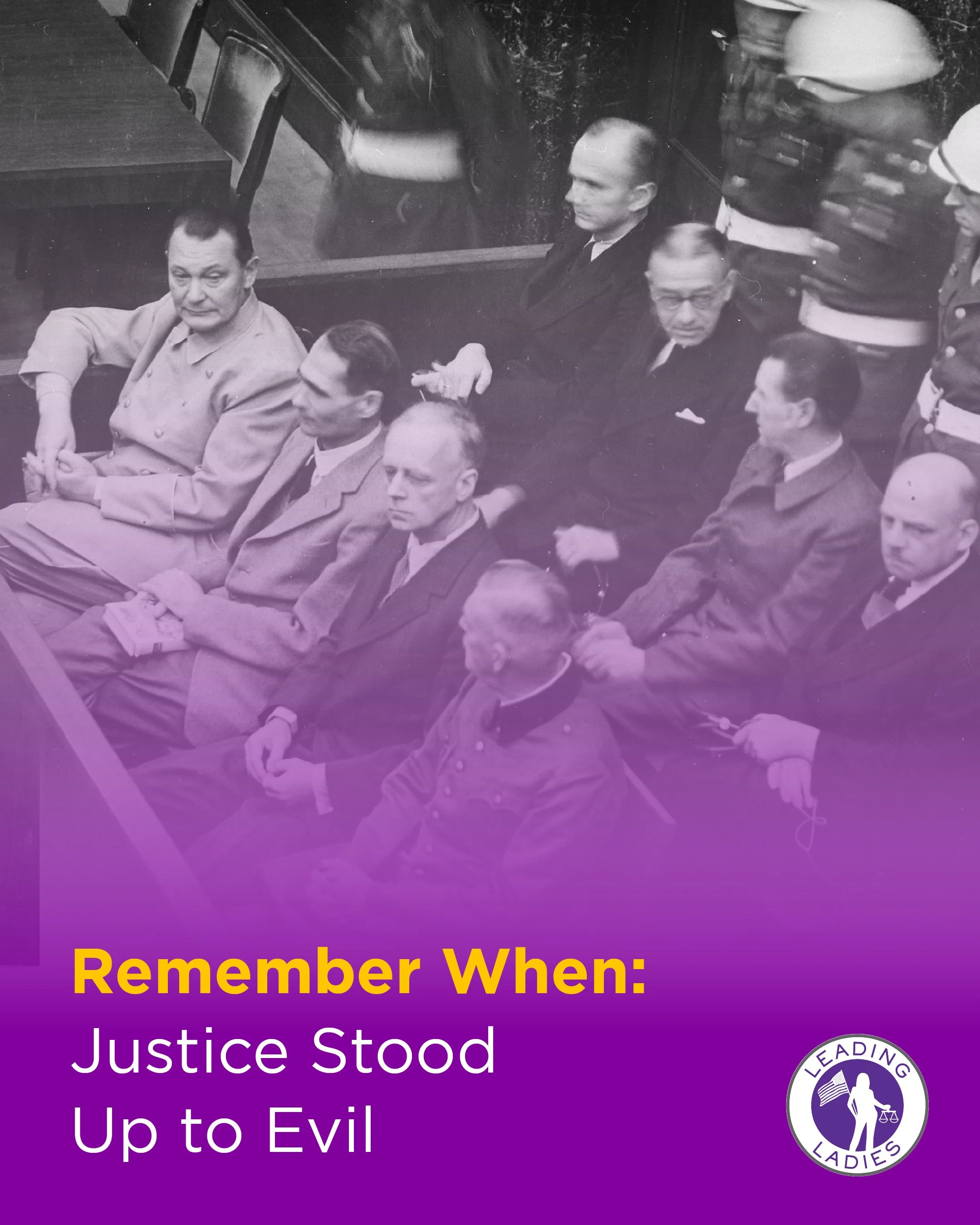Social Media Posts
Remember When: The Supreme Court Said "Now" on School Desegregation
On May 17, 1954, the Supreme Court ruled in Brown v. Board of Education that segregated schools were unconstitutional. It was a landmark decision. But it didn't end there.
Shirley Chisholm Ran for President in 1972. Then She Visited George Wallace in the Hospital.
On January 25, 1972, Congresswoman Shirley Chisholm stood in Brooklyn and announced she was running for president.
Remember When: Grand Teton National Park Was Established
Reverend Jesse Jackson passed away this week at 84, and with him, we lost a giant of the civil rights movement and American democracy.
Remember When: The Feminine Mystique
On this day in 1963, The Feminine Mystique by Betty Friedan was published — igniting what would become the second wave of the modern women’s movement.
Remember When: The Founding of the NAACP
On this day in 1909, a group of Black leaders, journalists, educators, and allies came together to form what would become one of the most influential civil rights organizations in American history: the National Association for the Advancement of Colored People.
Remember When: Celebrating Hank Aaron
This Wednesday, February 5th, would have been Hank Aaron's 92nd birthday. Born in 1934 in Mobile, Alabama, "Hammerin' Hank" became one of baseball's greatest players—and one of America's most dignified champions of equality.
Remember When: Roe v. Wade
Roe v. Wade was decided by the U.S. Supreme Court on January 22, 1973, recognizing that the Constitution protects a person’s right to privacy — including the right to make decisions about pregnancy without government interference.
Remember When: The Miracle on the Hudson
On January 15, 2009, 155 people boarded a routine US Airways flight from New York to Charlotte, expecting an ordinary trip. Instead, they became part of what would later be known as the “Miracle on the Hudson.” Just minutes after takeoff, a bird strike disabled both engines, forcing Captain Chesley Sullenberger and his crew to make a split-second decision: safely land an Airbus A320 on the Hudson River in the middle of New York City.
Remember When: LBJ Made Ending Poverty a Presidential Mission
On a crisp winter day in the U.S. Capitol, President Lyndon B. Johnson stood before Congress and made a bold promise: “This administration today, here and now, declares unconditional war on poverty in America.” It wasn’t a speech about numbers or budgets alone—it was a declaration that access and dignity were not privileges reserved for the few.
Remember When: Words Set a New Course for a Divided Nation
As the new year dawned in the middle of the Civil War, President Abraham Lincoln signed a document that would shift the moral weight of the conflict—and change the course of American history.
Remember When: A Tiny Device Sparked a Global Revolution
In a quiet Bell Labs lab in New Jersey, three physicists touched a strip of gold to a piece of germanium—and changed the future.
Remember When: The World Said Dignity Has No Border
Migration isn’t new. It’s not a crisis or a trend. It’s part of the human story—people moving in search of safety, dignity, and the chance to build something better.
Remember When: UNICEF Was Born to Reach the Forgotten
In the aftermath of World War II, the world was rebuilding—but not everyone was being included in that process. Millions of children were hungry, displaced, and forgotten in the margins of recovery.
Remember When: A Farewell That Helped Shape a Nation
In a quiet tavern in New York City, General George Washington gathered the officers who had stood beside him through eight years of war. The Revolution was won. The nation was new. And Washington had a message: he was going home.
Remember When: The Quiet Power of Caroline Kennedy’s Public Life
Caroline Kennedy was born into the most famous family in American politics — but her life would be shaped as much by loss as by legacy.
Remember When: Justice stood up to evil.
On this day in 1945, the Nuremberg Trials began — the first time in history that international courts held leaders accountable for crimes against humanity.
Remember When: Ruby Bridges Walked Into History
She was just six years old.
On November 14, 1960, Ruby Bridges became the first Black child to desegregate an all-white elementary school in the American South.
Remember When: LGBTQ+ History Was Made in the U.S. Senate
On November 6, 2012, Wisconsin voters made history — and progress.
That day, Tammy Baldwin became the first openly gay person ever elected to the U.S. Senate.
Remember When: A Founding Father Was Asked to Remember the Ladies?
October 30, 1735—John Adams was born
He would go on to become a founding father, the nation’s second president, and one of the loudest voices for American independence. A fierce defender of liberty, Adams helped shape a democracy built on bold ideals—but also bound by the limits of his time.
Remember When: Celebrating Jesse Jackson and Coalition Politics
On October 8, 1941, Jesse Louis Jackson Sr. was born in Greenville, South Carolina. A close ally of Dr. King, Jackson led Operation Breadbasket to leverage Black consumer power for fair hiring and pay, later founding the Rainbow PUSH Coalition to advance voting rights, economic justice, and human dignity.





